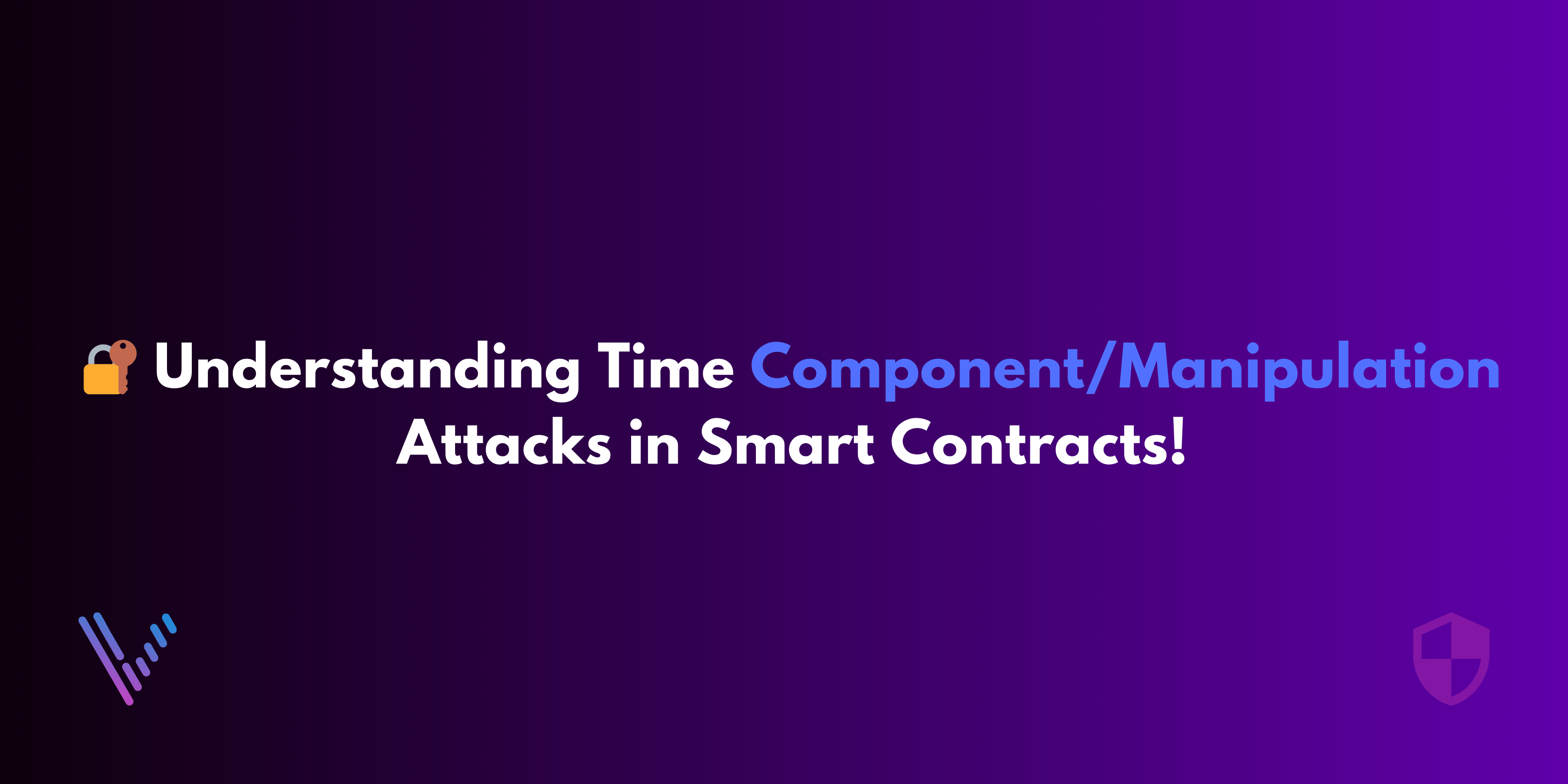In the realm of decentralized finance (DeFi), smart contract vulnerabilities can lead to massive financial losses. Today, let’s discuss one such vulnerability: Time Component/Manipulation Attacks.
📌 What is a Time Component/Manipulation Attack?
This attack occurs when a malicious actor manipulates the timestamp or block information of a blockchain transaction. In Ethereum, each block has a timestamp set by the miner, and smart contracts often rely on this timestamp (using the now or block.timestamp command). By influencing this, an attacker could potentially exploit time-based conditions in a contract.
pragma solidity ^0.8.0;
contract SimpleAuction {
address public highestBidder;
uint public highestBid;
uint public auctionEnd;
constructor(uint _biddingTime) {
auctionEnd = block.timestamp + _biddingTime;
}
function bid() external payable {
require(block.timestamp < auctionEnd, "Auction ended.");
require(msg.value > highestBid, "There already is a higher bid.");
if(highestBidder != address(0)) {
payable(highestBidder).transfer(highestBid);
}
highestBidder = msg.sender;
highestBid = msg.value;
}
}In the code above, the auction end time is determined based on the block.timestamp. But if a miner chooses to manipulate the timestamp slightly, it could extend or reduce the auction duration, potentially impacting the outcome.
🔧 Exploit Example:
Suppose the auction is nearing its end, and a miner wants to place the winning bid. They could:
- Create a transaction with a higher bid than the current highest bid.
- Manipulate the block’s timestamp to be just before the
auctionEnd. - Mine the block.
This way, even if in real-world time the auction should have ended, the manipulated timestamp would allow the miner to place and win the bid.
🛡️ Mitigation:
- Avoid reliance on
block.timestampfor critical logic. - Consider using block numbers instead of time, where appropriate.
- Implement a threshold (e.g., a 15-minute window) where operations using
block.timestampare invalid if they differ too much from the previous block’s timestamp.
Stay safe, and always audit your smart contracts! 🚀


Leave a Reply